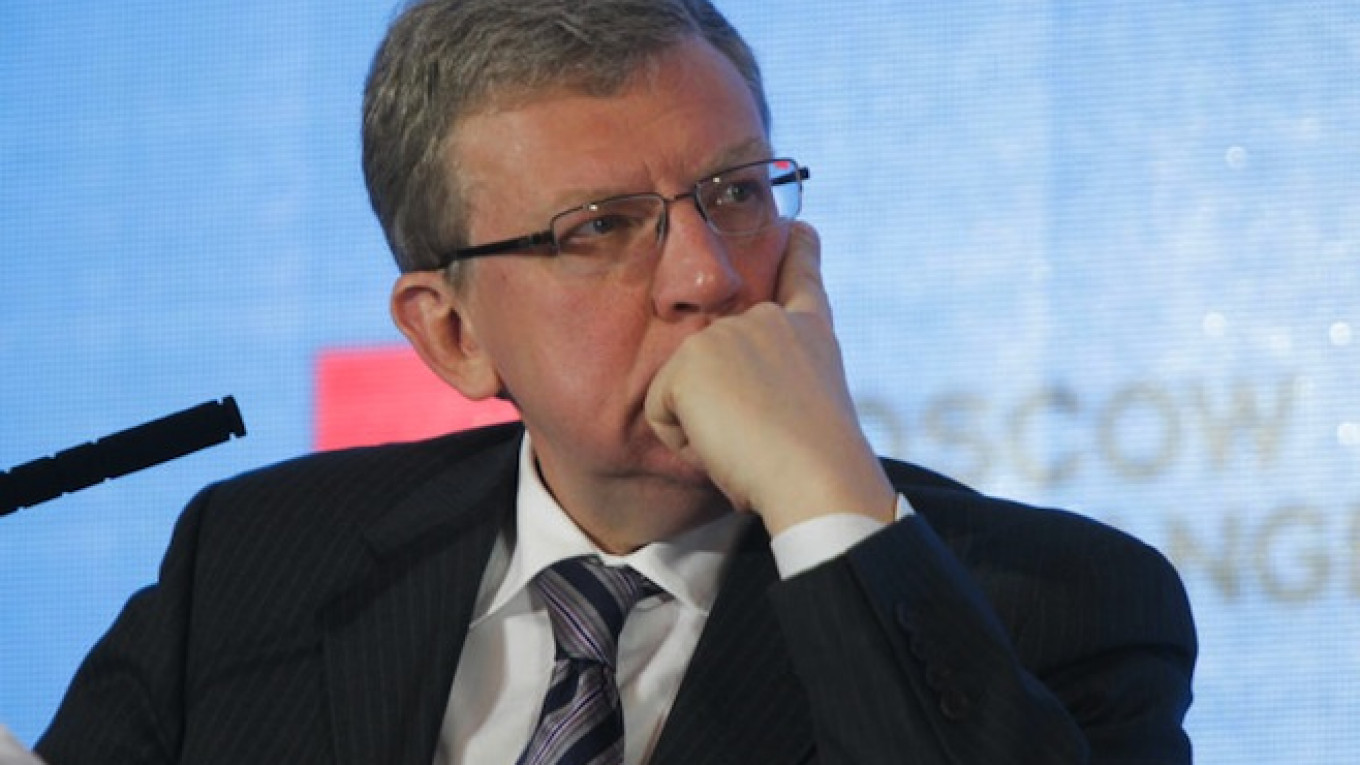ST. PETERSBURG — A former finance minister proposed on Thursday bringing forward the next presidential election to give his ally, Vladimir Putin, a stronger mandate to reform the economy and guide Russia through a financial "storm."
Russia is sliding into recession, with economic sanctions imposed by the West over Moscow's role in the Ukraine conflict taking a toll and lower global oil prices depriving the country of its main source of revenue.
Government officials assured foreign and domestic investors at the St. Petersburg International Economic Forum, Russia's biggest annual business event, that the economy was in better shape than seemed likely a few months ago.
But Alexei Kudrin, who was sacked as finance minister in 2011 but is widely thought to still have Putin's ear, said the economy needed deep reform.
"If you look at the situation from the point of view of growth, we are in the eye of the storm," he said, adding that the worst was not over for the economy.
"When we talk about structural reforms, it is not only about writing some document. We need political will, a team, and a president who shares all these opinions.
"Why do we not … bring forward the presidential election and announce a new reform program that would be easier to carry out with a new mandate?"
It is not clear whether Kudrin has discussed his idea with Putin, who won a six-year third term in 2012 and is eligible to run in 2018, or whether it is backed by others in the Kremlin.
Kudrin was sacked after a disagreement with Dmitry Medvedev, who was president at the time and is now prime minister, over high military spending. He is widely respected in the West.
Russian media say Moscow is already considering plans to bring forward a parliamentary election due in December 2016 by three months to improve the ruling United Russia party's chances.
Kazakhstan, an ally of Russia, brought forward its own presidential election this year in a move that helped Nursultan Nazarbayev secure re-election before an economic crisis worsens.
Russia's Central Bank reduced its main interest rate by a percentage point to 11.5 percent on Monday, inflation has slowed from 16.9 percent in April to 15.8 percent in May, and the ruble has risen to around 53 to the dollar after briefly hitting 80 in December.
"Everything has gone much better [than expected]," First Deputy Prime Minister Igor Shuvalov told the forum in the elegant former imperial capital, St. Petersburg, which was also the cradle of the 1917 Bolshevik revolution.
Fewer heads of big Western corporations have attended the conference since Russia annexed Crimea from Ukraine last year, partly because they were discouraged from doing so in 2014 by Washington but also because the economy is faring badly.
Investment has slowed to a trickle, capital flight has risen sharply and the Central Bank says annual economic growth will resume only around the middle of next year. It expects a contraction of about 3.2 percent in 2015.
Some independent analysts say the contraction will be even deeper and there is widespread acceptance that Russia should have done more to reduce its dependence on energy exports.
Putin has largely escaped criticism inside Russia over his handling of the crisis and his personal ratings are high. Most criticism over the economy has focused on the government.
A Message from The Moscow Times:
Dear readers,
We are facing unprecedented challenges. Russia's Prosecutor General's Office has designated The Moscow Times as an "undesirable" organization, criminalizing our work and putting our staff at risk of prosecution. This follows our earlier unjust labeling as a "foreign agent."
These actions are direct attempts to silence independent journalism in Russia. The authorities claim our work "discredits the decisions of the Russian leadership." We see things differently: we strive to provide accurate, unbiased reporting on Russia.
We, the journalists of The Moscow Times, refuse to be silenced. But to continue our work, we need your help.
Your support, no matter how small, makes a world of difference. If you can, please support us monthly starting from just $2. It's quick to set up, and every contribution makes a significant impact.
By supporting The Moscow Times, you're defending open, independent journalism in the face of repression. Thank you for standing with us.
Remind me later.






